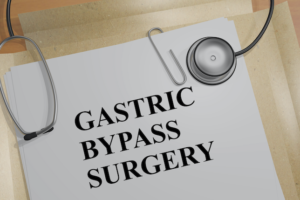 Trying to lose weight may be one of the hardest day-to-day challenges you’re facing right now. It’s a constant struggle, and choosing what foods to eat, what not to eat and sticking to a diet plan can be easily derailed by hunger or temptation.
Trying to lose weight may be one of the hardest day-to-day challenges you’re facing right now. It’s a constant struggle, and choosing what foods to eat, what not to eat and sticking to a diet plan can be easily derailed by hunger or temptation.
For those with weight issues affecting their health, a surgical remedy may be appropriate. Surgery candidates are typically obese adults with a body mass index of 30 or more and a weight-related condition, such as type-2 diabetes.
Below are a few types of bariatric weight loss procedures to consider with your consulting physician (be sure to ask about complications and side effects):
Gastric Balloon: This outpatient procedure involves the introduction of a small, uninflated balloon into the stomach. The balloon is inflated internally and is typically removed after 6 months; it creates the sensation of feeling full sooner. In addition to weight loss, other potential benefits include improvement with cardiac health and joint or bone issues. The procedure may be costly and is not usually covered by insurance.
Gastric Band: While it’s similar in concept to the gastric balloon, a gastric band is inserted surgically and adjusted around the upper part of the stomach. The band squeezes the stomach so that only a small amount of food can be held. After the band’s removal, the stomach can return to its original size.
Gastric Bypass: During a gastric bypass procedure, a surgeon will divide the stomach into a small upper section and a larger bottom section, usually using staples. The top section, or “pouch,” holds about one ounce of food, and connects directly to the small intestine. In theory, the body absorbs less calories, but some health risks exist, including inflamed stomach lining, internal injury/scarring and poor nutrition. The procedure may be covered by insurance.
Gastric Sleeve: During a sleeve gastrectomy, a large portion of the stomach is removed, leaving a small, banana-sized sleeve that reduces stomach capacity by as much as 85 percent. The procedure is not reversible and may require a hospital stay; however, it’s considered less risky than gastric bypass and patients have seen high success rates. Recovery can take up to 6 weeks.
John G. Raheb, G.O., Moses K. Shieh, G.O., and Richard Ramlogan, M.D. of Surgical Healing Arts in Fort Meyers are members of the Independent Physicians Association of Lee County, a network of independent physicians committed to maintaining high-quality medical care in southwest Florida. For help selecting an independent physician or for more information on the IPALC, call 239-314-0791 or visit http://www.ipalc.org.
Share on Facebook



 Southwest Florida Medicine.com is dedicated to bringing you the very best health information available today!
Subscribe or check back regularly!
Southwest Florida Medicine.com is dedicated to bringing you the very best health information available today!
Subscribe or check back regularly!